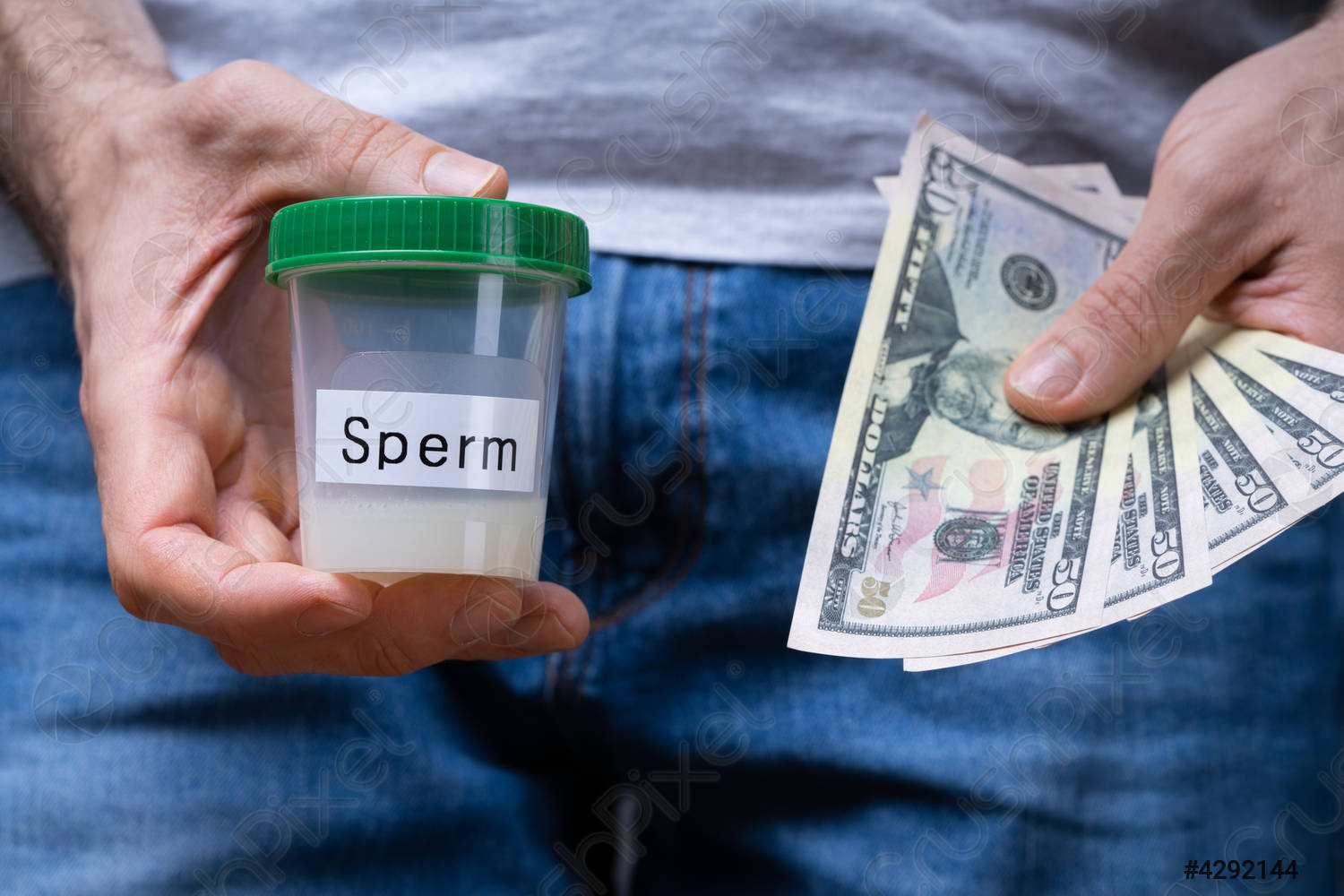Sperm donation is a process where a man donates his semen, which contains sperm, to help individuals or couples conceive a child. This method is a beacon of hope for many facing infertility, single women wishing to become mothers, or same-sex couples wanting to start a family.
With advancements in reproductive technology and changing societal norms, sperm donation has become more accessible and widely accepted.
In this comprehensive guide, we’ll explore what sperm donation is, how it works, its benefits and risks, legal and ethical considerations, and answer the most frequently asked questions. Whether you’re considering becoming a sperm donor or recipient, this article will provide you with all the information you need.
What is Sperm Donation?

Sperm donation involves a healthy male providing his semen to a sperm bank or fertility clinic. The donated sperm is then used for artificial insemination or in vitro fertilization (IVF) to help individuals or couples conceive. Donors can be anonymous or known to the recipient.
Why Do People Need Sperm Donation?
There are several reasons why sperm donation is sought after:
- Male infertility: When a male partner has a low sperm count or poor sperm quality.
- Single women: Women who wish to have a child without a male partner.
- Same-sex couples: Lesbian couples who want to start a family.
- Genetic concerns: To avoid passing on hereditary diseases.
How Does the Sperm Donation Process Work?
For Donors
- Screening and Application: Potential donors undergo rigorous screening, including medical history, genetic testing, and infectious disease testing.
- Semen Analysis: The quality and quantity of sperm are evaluated.
- Donation: Donors provide semen samples, usually through masturbation at a clinic.
- Quarantine and Retesting: Samples are frozen and quarantined for 6 months, after which the donor is retested for infectious diseases.
- Release for Use: If all tests are clear, the sperm is released for use.
For Recipients
- Choosing a Donor: Recipients select a donor based on physical traits, education, and medical history.
- Legal Agreements: Contracts may be signed, especially with known donors.
- Fertility Treatment: Sperm is used for artificial insemination or IVF.
- Pregnancy Testing: Recipients are monitored for pregnancy.
Sperm Donation Requirements
Donor Eligibility Criteria
| Requirement | Details |
|---|---|
| Age | 18-39 years (varies by clinic) |
| Medical History | No hereditary diseases, good overall health |
| Lifestyle | Non-smoker, limited alcohol, no drug use |
| Physical Exam | Height, weight, BMI, and general health check |
| Psychological Testing | Mental health evaluation |
| Genetic Screening | Tests for common genetic disorders |
| Infectious Disease | HIV, Hepatitis B & C, STIs |
Types of Sperm Donors
| Type | Description | Pros | Cons |
|---|---|---|---|
| Anonymous | Donor identity is not revealed to recipient or child | Privacy for donor and recipient | Child may not know biological parent |
| Known | Donor is known to recipient (friend, family) | Easier legal agreements | Complex relationships |
| Open-identity | Donor agrees to be contacted by child at a certain age (usually 18) | Child can contact biological parent | Less privacy for donor |
Sperm Donation Process: Step-by-Step
1. Application and Screening
Potential donors fill out an application and undergo initial screening. This includes:
- Medical history review
- Family history check
- Physical examination
- Semen analysis
2. Medical and Genetic Testing
Donors are tested for:
- Sexually transmitted infections (STIs)
- Genetic disorders (e.g., cystic fibrosis, sickle cell anemia)
- Blood type and Rh factor
3. Psychological Evaluation
A mental health professional assesses the donor’s psychological well-being and ensures they understand the implications of donation.
4. Donation and Storage
Donors provide semen samples, which are frozen and stored in liquid nitrogen. Samples are quarantined and retested after six months.
5. Matching and Insemination
Recipients select a donor. The sperm is thawed and used for intrauterine insemination (IUI) or IVF.
Sperm Banks vs. Private Donation
| Feature | Sperm Bank Donation | Private Donation |
|---|---|---|
| Screening | Comprehensive medical/genetic testing | Varies; may not be as thorough |
| Anonymity | Usually anonymous or open-identity | Known donor |
| Legal Protection | Contracts and legal support | May require separate legal agreements |
| Cost | Higher due to screening and storage | Lower, but less regulated |
| Success Rate | Higher due to quality control | Varies |
Legal and Ethical Considerations
- Parental Rights: Laws vary by country and state. In most cases, sperm donors have no legal rights or responsibilities to the child.
- Anonymity vs. Identity: Some countries require donors to be identifiable to offspring at age 18.
- Compensation: Donors may be compensated for time and expenses, but not for the sperm itself in some regions.
- Number of Offspring: Many sperm banks limit the number of families per donor to reduce the risk of accidental incest.
Risks and Benefits of Sperm Donation
Benefits
- Helps families grow: Enables people to have children who otherwise could not.
- Genetic diversity: Recipients can choose donors with desirable traits.
- Compensation: Donors may receive payment for their time and effort.
Risks
- Medical risks: Minimal for donors; recipients may face risks associated with fertility treatments.
- Emotional impact: Donors and recipients may experience complex emotions.
- Legal complications: Especially with known donors or unclear agreements.
Frequently Asked Questions About Sperm Donation
1. Who can become a sperm donor?
Healthy men aged 18-39 (sometimes up to 45) with no significant genetic or infectious diseases.
2. How much do sperm donors get paid?
Compensation varies by country and clinic, ranging from $50 to $150 per donation in the US.
3. Is sperm donation anonymous?
It depends on the country and the donor’s choice. Some programs offer open-identity donation.
4. Can a sperm donor meet the child?
With open-identity donation, yes, usually when the child turns 18.
5. How many times can one person donate sperm?
Most sperm banks limit the number of families per donor (usually 10-15).
6. What is the success rate of pregnancy with donor sperm?
Success rates vary: 10-20% per cycle for IUI, higher for IVF.
Sperm Donation by Country: Regulations and Trends
| Country | Anonymity Allowed? | Compensation | Open-Identity Required? | Notable Laws/Trends |
|---|---|---|---|---|
| USA | Yes/Optional | Yes | Optional | Wide donor choice, commercial sperm banks |
| UK | No | Yes (expenses) | Yes | Children can contact donor at 18 |
| Australia | No | Yes (expenses) | Yes | Strict limits on number of families per donor |
| Canada | No | Yes (expenses) | Yes | Non-commercial, strict screening |
| India | Yes | Yes | No | New regulations limiting anonymity |
Choosing a Sperm Bank or Clinic
When selecting a sperm bank, consider:
- Accreditation: Look for clinics accredited by relevant authorities (e.g., FDA, HFEA).
- Screening process: Ensure thorough medical and genetic testing.
- Donor profiles: Access to detailed donor information.
- Legal support: Assistance with contracts and legalities.
- Success rates: Higher rates indicate better quality control.
Sperm Donation and LGBTQ+ Families
Sperm donation is a vital option for LGBTQ+ individuals and couples. Many clinics offer tailored services, including:
- Donor selection based on desired traits
- Legal counseling for parental rights
- Support groups and resources
Sperm Donation Trends in 2025
- Growing demand: More single women and LGBTQ+ couples are seeking donor sperm.
- Genetic screening: Advanced testing for hereditary diseases.
- Open-identity donors: Increasing preference for donors willing to be contacted by offspring.
- International donation: Cross-border sperm donation is rising, but legal issues may arise.
Comparison Table: Sperm Donation vs. Egg Donation
| Feature | Sperm Donation | Egg Donation |
|---|---|---|
| Donor Gender | Male | Female |
| Procedure | Non-invasive (masturbation) | Invasive (hormone injections, retrieval) |
| Compensation | Lower | Higher |
| Medical Risks | Minimal | Higher (due to medication, surgery) |
| Screening | Medical, genetic, psychological | Medical, genetic, psychological |
| Use | IUI, IVF | IVF |
Conclusion
Sperm donation is a safe, regulated, and increasingly popular way to help individuals and couples build families. Whether you’re considering donating sperm or using donor sperm to conceive, understanding the process, legalities, and emotional aspects is crucial.
By choosing a reputable sperm bank or clinic, ensuring thorough screening, and seeking legal advice, you can make informed decisions that benefit all parties involved.
As societal attitudes continue to evolve, sperm donation will remain a vital part of reproductive medicine, offering hope and happiness to countless families worldwide.





